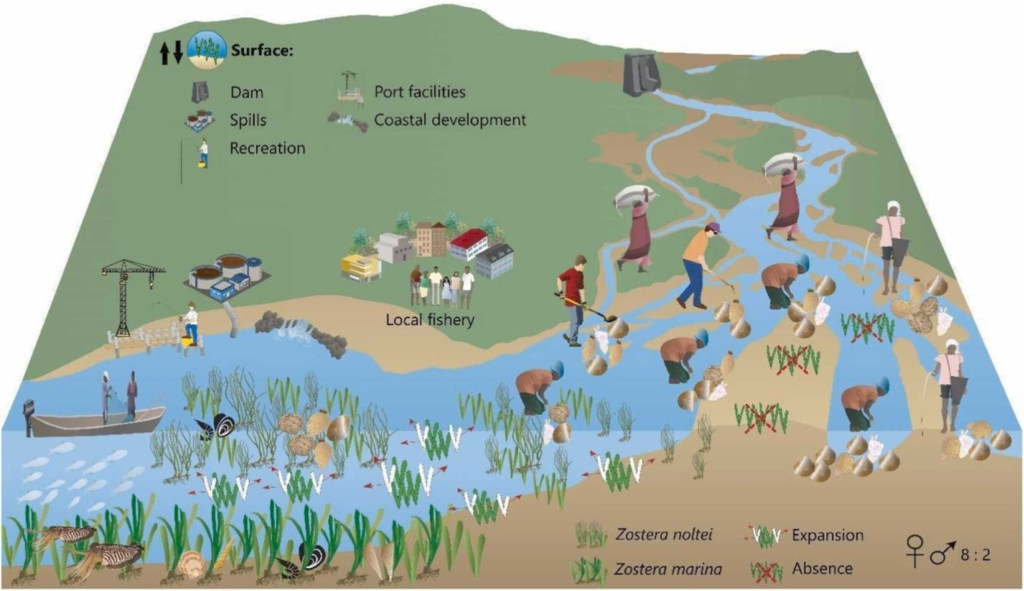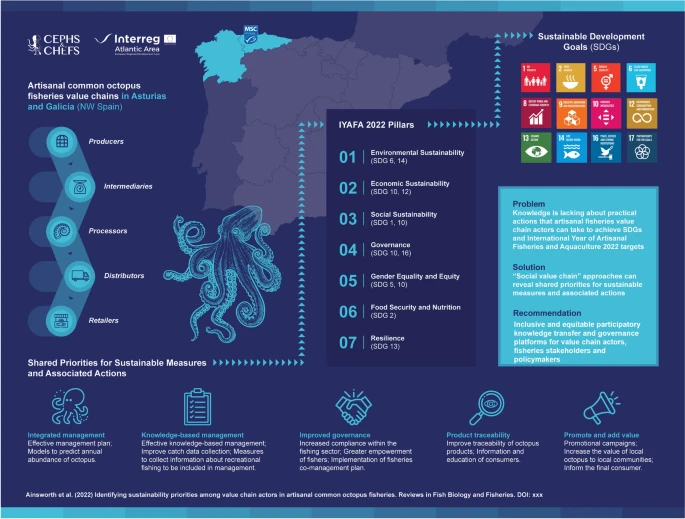En este artículo que publicamos en Marine Policy, constatamos que las praderas de pastos marinos proporcionan servicios ecosistémicos clave. Analizamos las interacciones bidireccionales entre el marisqueo y lechos de Zostera spp. en Galicia e identificamos necesidades en el sistema de gobernanza relacionadas con la gestión de las praderas marinas. En general, las mariscadoras valoran negativamente la presencia de fanerógamas marinas porque se necesita un mayor esfuerzo físico para faenar. Las mariscadoras también reconocieron que las plantas se dañan fácilmente durante su trabajo diario. Sin embargo, las mariscadoras más experimentadas reconocieron beneficios de las praderas para los ecosistemas costeros y para las pesquerías (incluidas las de moluscos infaunales), como un mayor reclutamiento. Los autores concluimos que debe fomentarse la compatibilidad del marisqueo y la conservación de las praderas mediante programas de monitoreo de pastos marinos para desarrollar estrategias de gestión pesquera adaptativa.



